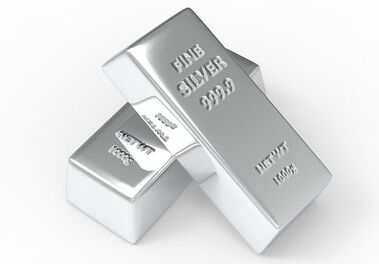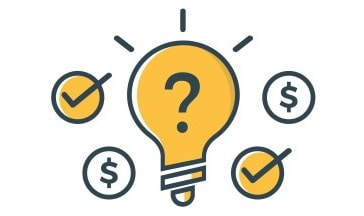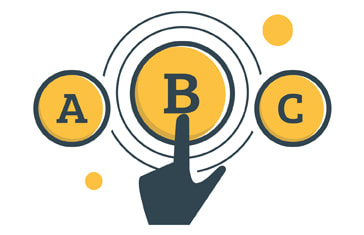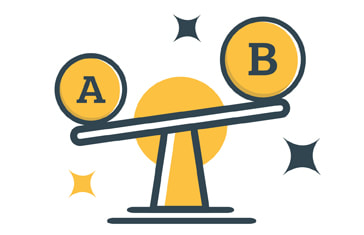How to Invest in Silver - The Definitive New Zealand Guide
Our guide explains everything you need to know before investing in silver, and outlines silver investment products specifically available from New Zealand.
Updated 6 March 2023
Summary:
Our guide covers:
Disclaimer: This guide is for educational purposes only and shouldn't be interpreted as investment advice. This guide's contents present a range of investment products related to silver but do not advocate the appropriateness of any of these products to our readers.
For a comprehensive breakdown of investing in other precious metals and alternative assets, check out our guides below:
Summary:
- With the increasingly volatile stock markets causing uncertainty for many Kiwis, investing in alternative assets has become increasingly popular. One of the most popular alternative investments is investing in commodities like silver.
- Investing in silver is one of many ways to diversify your portfolio and hedge against economic uncertainty. Silver has a long history as a valuable and coveted precious metal, and it continues to be highly sought after for its various industrial, technological, and decorative uses.
- It's not without risks and today, there are numerous silver and silver-derivative products for investing or speculating.
- Investing in commodities such as silver can be a great way to diversify your investment portfolio and hedge against economic uncertainty. Silver has a wide range of uses and is highly valued for its beauty, versatility, and industrial applications.
- There are several ways to invest in silver in New Zealand, including buying physical silver, investing in silver through a fund or ETF, investing in silver through derivatives and investing in silver mining companies.
Our guide covers:
- How Can I Invest in Silver?
- Where Can I Buy Silver in New Zealand?
- Taxes, Travelling and Safety Considerations with Silver
- What are the Prices and Spreads for Silver in New Zealand?
- Pros and Cons of Investing in Silver
- Frequently Asked Questions
Disclaimer: This guide is for educational purposes only and shouldn't be interpreted as investment advice. This guide's contents present a range of investment products related to silver but do not advocate the appropriateness of any of these products to our readers.
For a comprehensive breakdown of investing in other precious metals and alternative assets, check out our guides below:
Know This First: A Summary of Precious Metals
- Precious metals are rare, naturally occurring metallic elements considered valuable and highly sought after. They’re typically used as a store of wealth and as a hedge against economic uncertainty due to their inherent value, scarcity, and durability. Gold, platinum, silver and palladium are the four main precious metals.
- Gold has long been considered the most valuable and coveted of the precious metals due to its rarity, beauty, and versatility. As a result, it has a wide range of uses, including jewellery, coins, and industrial and technological applications. Gold is also widely used as a store of value and a medium of exchange, and it's often viewed as a haven asset during times of economic uncertainty.
- Silver is another highly valuable precious metal prized for its beauty, versatility, and industrial uses. It's less abundant than gold and is considered less valuable. Still, it has several unique properties that make it highly sought after in various industries.
- This guide will focus exclusively on silver. For gold, we have published a dedicated guide.
What is Silver? What are the Main Uses of Silver?
Silver is a chemical element with the atomic number 47 and has the symbol Ag. It's a soft, white, lustrous metal that’s highly reflective and conductive. Silver is found naturally in the earth's crust and is often extracted from ores such as argentite (silver sulphide) and chlorargyrite (silver chloride).
Silver has a wide range of uses, including industrial, technological, and decorative applications. Some of the main uses of silver include:
Silver has a wide range of uses, including industrial, technological, and decorative applications. Some of the main uses of silver include:
- Industrial and technological applications: Silver is an excellent conductor of electricity and heat, and it's used to manufacture electrical and electronic products, such as wiring, switches, and connectors. It's also used to produce batteries, solar panels, and other renewable energy technologies.
- Medical and dental applications: Silver is antimicrobial and is used in producing medical and dental products, such as bandages, wound dressings, and dental fillings.
- Jewellery and decorative objects: Silver is widely used in producing them due to its beauty and lustre. It's also used to manufacture coins, medals, and other collectables.
- Photography: Silver is used heavily in producing photographic film and paper due to its light sensitivity and ability to produce high-quality images.
- Tableware: Silver produces fine and other tableware, such as cutlery and serving dishes.
How Can I Invest in Silver?
There are a few ways you can invest in silver in New Zealand. Some of the most common options include:
Buying physical silver
The two main types of physical silver that you can buy in New Zealand are silver coins and silver bars. Silver coins are a popular form of silver, often minted as a collectable or used as a medium of exchange. Silver bars are bullion typically made of 99.9% pure silver. They’re often minted by private companies or government mints and come in various sizes, ranging from small bars weighing a few ounces to large bars weighing several hundred ounces.
You can buy silver from various sources, including coin dealers, precious metal dealers, and online retailers. Physical silver can be stored in a safe deposit box or at home, but it's important to consider the potential risks of theft or loss. The top places to buy physical silver in New Zealand include:
You can buy silver from various sources, including coin dealers, precious metal dealers, and online retailers. Physical silver can be stored in a safe deposit box or at home, but it's important to consider the potential risks of theft or loss. The top places to buy physical silver in New Zealand include:
- Coin dealers: Coin dealers are a good place to buy silver coins, particularly if you are looking for rare or collectable coins. You can find coin dealers in most major cities in New Zealand, or you can shop online from the comfort of your home.
- Precious metal dealers: Precious metal dealers specialise in buying and selling a variety of precious metals, including silver. You can find precious metal dealers in most major cities in New Zealand, or you can shop online.
- Online retailers: Many retailers, including local and international, sell silver in New Zealand. Shopping online can be convenient, but it's important to research and exercise caution before purchasing.
Investing in silver through ETFs
An exchange-traded fund (ETF) is a type of investment fund that tracks the price of a particular asset, such as silver. ETFs are traded on stock exchanges, allowing investors to buy and sell the fund's shares without owning the underlying asset physically. For example, silver ETFs are a convenient way to invest in silver without having to purchase and store physical silver.
Some of the most popular ETFs that invest exclusively in silver (the physical metal) and that are available to invest on popular platforms like Sharesies, Hatch and Stake include:
Some of the most popular ETFs that invest exclusively in silver (the physical metal) and that are available to invest on popular platforms like Sharesies, Hatch and Stake include:
- iShares Silver Trust (ARCA:SLV)
- ProShares Ultra Silver ETF (ARCA:AGQ)
- Invesco DB Silver Fund (ARCA:DBS)
- Aberdeen Standard Physical Silver Shares ETF (ARCA:SIVR)
Investing in silver through derivatives (such as futures or options)
Futures and options are financial derivatives that allow investors to speculate on the price of an asset, such as silver. These instruments can be complex and carry a high level of risk, so they’re not suitable for all investors. Our guide explains options trading in New Zealand.
Investing in silver mining companies
Another way to invest in silver is by purchasing shares in silver mining companies. Investing in silver mining companies allows investors to benefit from the company's profits, which may depend on the price of silver. These financial products are still considered ETFs, but these ETFs only invest in silver mining companies rather than the physical metal directly. The top ETFs with exposure to silver mining companies include:
Note that none of the ETFs listed in the above sections are endorsements. Rather, the ETFs listed above are purely to show examples of ETFs that have exposure to silver. Our guide breakdowns ETFs in New Zealand to help explain ETFs further.
- Global X Silver Miners ETF (ARCA:SIL)
- iShares MSCI Global Silver Miners ETF (BATS:SLVP)
- ETFMG Prime Junior Silver ETF (ARCA:SILJ)
Note that none of the ETFs listed in the above sections are endorsements. Rather, the ETFs listed above are purely to show examples of ETFs that have exposure to silver. Our guide breakdowns ETFs in New Zealand to help explain ETFs further.
Where Can I Buy Silver in New Zealand?
New Zealand is fortunate to have a few notable silver dealers that sell and repurchase coins/bullion. We list the two main dealers below - note that listing a company below is not an endorsement.
Buy Bullion NZ
Buy Bullion NZ is a New Zealand based online bullion dealer that specialises in buying and selling precious metals such as gold and silver. They offer a wide range of bullion products, including coins, bars, rounds and more from reputable mints and refineries around the world. They also offer different options for storage and shipping services for the products they sell, which can provide an added layer of security and convenience for customers.
One of the unique features of Buy Bullion NZ is that they accept different types of payment options, including bank transfer, credit card, and POLi, which can be a convenient option for many customers. For Anti Money Laundering (AML) reasons, Buy Bullion NZ doesn’t accept cash.
They also provide detailed information on their website, including product specifications and historical prices, which can help customers make an informed decision when buying or selling bullion.
In addition, Buy Bullion NZ has a reputation for providing good service and quality products. They’ve been operating as a New Zealand business for many years and have a long track history of successful dealings. They also have a wide variety of products to choose from, which can be beneficial for customers looking for specific types of bullion.
More details: Buy Bullion NZ
One of the unique features of Buy Bullion NZ is that they accept different types of payment options, including bank transfer, credit card, and POLi, which can be a convenient option for many customers. For Anti Money Laundering (AML) reasons, Buy Bullion NZ doesn’t accept cash.
They also provide detailed information on their website, including product specifications and historical prices, which can help customers make an informed decision when buying or selling bullion.
In addition, Buy Bullion NZ has a reputation for providing good service and quality products. They’ve been operating as a New Zealand business for many years and have a long track history of successful dealings. They also have a wide variety of products to choose from, which can be beneficial for customers looking for specific types of bullion.
More details: Buy Bullion NZ
NZ Mint
New Zealand Mint is a reliable place to buy bullion in New Zealand. Although it’s a reputable company, the range of investment products is limited and generally doesn’t offer coins or bars smaller than one ozt. If you’re looking to invest large amounts over a long-term horizon, it might be a good option for secure storage. You can pay in USD or NZD by Visa, Mastercard, PayPal or bank transfer.
More details: NZ Mint
More details: NZ Mint
Know This: The Top Considerations to Factor in When Buying Physical Silver
When buying silver in New Zealand, it's important to research and shop around to find the best deal. Some things to consider when choosing where to buy silver include:
- Reputation: Look for a dealer or retailer with a good reputation and a record of satisfied customers. You can check online reviews or ask for recommendations from friends or colleagues.
- Prices: Shop around and compare prices from dealers and retailers to find the best deal. It's also a good idea to compare prices to the current spot price of silver, which is the price of the metal in its raw, unrefined form.
- Selection: Look for a dealer or retailer that offers a wide selection of silver products, including coins and bars of varying sizes. This variety will give you more options and may allow you to find the product that best suits your needs.
- Security: When buying silver, it's important to consider the transaction's security and your investment's safety. Look for a dealer or retailer that takes security seriously and offers secure payment methods, such as credit card or bank transfer.
Taxes, Travelling and Safety Considerations with Silver
You should consider a few things regarding taxes, travelling, and safety when buying and investing in silver in New Zealand.
Taxes
According to the IRD, silver in New Zealand with a fineness of over 99.9% is exempt from Goods and Services Tax (GST), but the tax implications of selling silver profits is unclear as there is no Capital Gains Tax (CGT) in New Zealand. Additional taxes may be levied on the profit you make from selling the metal depending on your situation. Therefore, it's important to understand the tax implications of buying and selling silver before you start investing - our guide to tax on investments has further information.
Travelling
Travelling with silver can be complex as regulations vary by country. If you’re planning to travel with your silver (either when you're buying it or selling it), it's important to consider the restrictions and regulations that may apply. Some countries have restrictions on importing or exporting precious metals, and you may need to declare your silver at customs.
Most countries may have a limit of $10,000 worth of cash or equivalent assets (such as precious metals) before you need to declare it, but make sure you check with the specific country you’re travelling to. Note that like any other commodity, the value of silver will fluctuate, so you may end up being over the limit depending on what the price of silver does.
Most countries may have a limit of $10,000 worth of cash or equivalent assets (such as precious metals) before you need to declare it, but make sure you check with the specific country you’re travelling to. Note that like any other commodity, the value of silver will fluctuate, so you may end up being over the limit depending on what the price of silver does.
Safety
When buying and storing silver, it's important to consider the safety of your investment. If you’re storing silver at home, keeping it in a safe place, such as a safe deposit box or a secure location, is a good idea. It's also a good idea to consider insurance to protect your silver in case of theft or loss. For a more comprehensive breakdown, visit our guide to contents insurance.
What are the Prices and Spreads for Silver in New Zealand?
- The prices and spreads for silver in New Zealand will vary depending on several factors, including the type of silver you’re buying, the quantity, and the purity of the metal. The spot price of silver is defined as the current price of the metal in its raw, unrefined form, and it's generally considered to be the benchmark price for silver. Several factors determine the spot price, including supply and demand, economic conditions, and geopolitical events.
- The spread of silver's price is the difference between the bid price (the price you can sell silver) and the asking price (the price you can buy silver). The spread is typically wider for smaller quantities of silver and may be influenced by factors such as the dealer's overhead costs and the level of liquidity in the market.
- You can find the most recent spot prices for silver through NZMint or Interest.
Pros and Cons of Investing in Silver
Pros:
There are several pros to investing in silver, including:
Cons:
There are also some cons to investing in silver, including:
There are several pros to investing in silver, including:
- Hedge against economic uncertainty: Some people invest in silver as a hedge against economic uncertainty, as the value of silver tends to increase during times of economic instability or deflation.
- Diversification: Silver is considered a non-correlated asset, meaning its price movements are not tied to those of other assets, such as stocks or bonds. This characteristic makes investing in silver a good way to diversify your portfolio and hedge against economic uncertainty.
- Industrial uses: Silver has a wide range of industrial uses, including in producing electrical and electronic products, batteries, and solar panels. This flexibility means that the demand for silver may be influenced by economic growth and technological advancements.
- Scarcity: Silver is a relatively scarce metal, with only a limited amount of it being mined each year. This scarcity can make it a good store of value and help protect against inflation.
- Beauty and collectibility: Silver is a beautiful and lustrous metal widely used in jewellery and decorative objects. This beauty can make it a desirable investment for collectors and those who appreciate the aesthetic value of the metal.
Cons:
There are also some cons to investing in silver, including:
- Volatility: The price of silver can be volatile and may fluctuate significantly in response to economic conditions and other factors. This volatility can make it a risky investment, particularly for those who aren’t prepared to weather price fluctuations.
- Market manipulation: The silver market is relatively small compared to other commodities (such as gold) and markets (such as the currency or stock markets), which may be more vulnerable to manipulation. This manipulation potential can create additional risks for investors.
- Storage and security: Buying physical silver requires storage and security, which can burden some investors. It's important to consider the potential risks of theft or loss when storing silver at home or in a safe deposit box.
- Taxes: Potential taxes can impact the overall return on investing in silver. Reinforcing the point made above, it's important to research and understand the tax implications of silver investing.
Frequently Asked Questions
Is silver a good investment in New Zealand?
Silver can be a good investment in New Zealand, as it can diversify your investment portfolio and act as a hedge against economic uncertainty. However, the value of silver can be volatile and may fluctuate significantly in response to economic conditions and other factors, so it's important to understand the risks involved before investing.
What are the risks of buying and selling silver online?
Buying silver online in New Zealand can be convenient, but it's important to be cautious and research before making a purchase. There are risks associated with buying and selling silver online, including fraud or scams, losing your personal and financial information, and not receiving the product you paid for. Therefore, it's important to be cautious, research before buying or selling silver online, and use secure payment methods to protect your information. It's also recommended to check any ongoing potential scams and protect your personal and financial information when shopping online.
What’s the ideal size of silver to buy?
The ideal size of silver to buy will depend on your budget and investment goals. For example, some investors may prefer to buy smaller denominations of silver, such as 1-ounce coins, while others may prefer to buy larger quantities, such as 100-ounce bars.
What is the New Zealand Mint? How does it relate to silver?
The New Zealand Mint is a private company that produces collectable coins, bullion coins, and medals for countries around the world. The mint is not affiliated with the New Zealand government and does not produce circulation coins for the country.
What’s an ETC, and how is it unique from an ETF?
An ETC (exchange-traded commodity) is a type of financial instrument that tracks the price of a physical commodity, such as silver. An ETF (Exchange-Traded Fund) is an investment product that tracks the price of a basket of assets, such as stocks, bonds, or commodities. ETCs and ETFs are similar in that they are traded on stock exchanges and offer convenient and accessible ways to invest in various assets.
Is fake silver common in New Zealand?
Unlike fake gold, fake silver isn’t that common in New Zealand, but it's always a good idea to be cautious and research before buying silver to ensure that you get a genuine product.
Why should I buy silver over stocks or bonds?
Some people may choose to invest in silver over stocks or bonds because they view it as a hedge against economic uncertainty or deflation, or because they are attracted to the metal's industrial uses and aesthetic value. However, it's important to understand that investing in silver carries risks and may not be suitable for all investors. Silver isn’t a “better” investment over stocks or bonds, but may be more suitable or attractive to some investors over others depending on their risk and return appetite.
Is it risky to buy silver?
Investing in silver can be risky, as the price of the metal can be volatile and may fluctuate significantly in response to economic conditions and other factors. Therefore, it's important to understand the key risks involved and to be prepared to weather price fluctuations when investing in silver.
What happens if I lose my silver?
If you lose your silver and you don’t have contents insurance, it’s unlikely you’ll be able to recover it. This increased ability to lose silver due to its physical nature is one of the downsides of investing in physical silver. Therefore, it's important to consider the risks of theft or loss when storing silver.
Is silver a useful way to pass on wealth to the next generation?
Silver can be a useful way to pass on wealth to the next generation, as it can be a store of value and may act as a hedge against economic uncertainty. However, due to silver’s significantly lower value compared to gold, it’s much less common to use silver as a way to pass on wealth to your children. More Kiwis are likely to pass down gold watches or jewellery compared to silver as a means of wealth transfer.
How does investing in silver compare to investing in gold?
Investing in silver can differ from investing in gold in several ways, including the metal's risks, returns, and uses. For example, silver is generally considered to be more volatile than gold. Silver is also far cheaper than gold on an ozt basis. Still, it also has a wider range of industrial uses, making it a good hedge against economic growth and technological advancements.
Does silver jewellery exist? Is it valuable?
Silver jewellery can be valuable, as it's made from precious metal and may have decorative or sentimental value. However, the value of silver jewellery will depend on factors such as the purity of the metal, the craftsmanship, and the demand for the piece.









